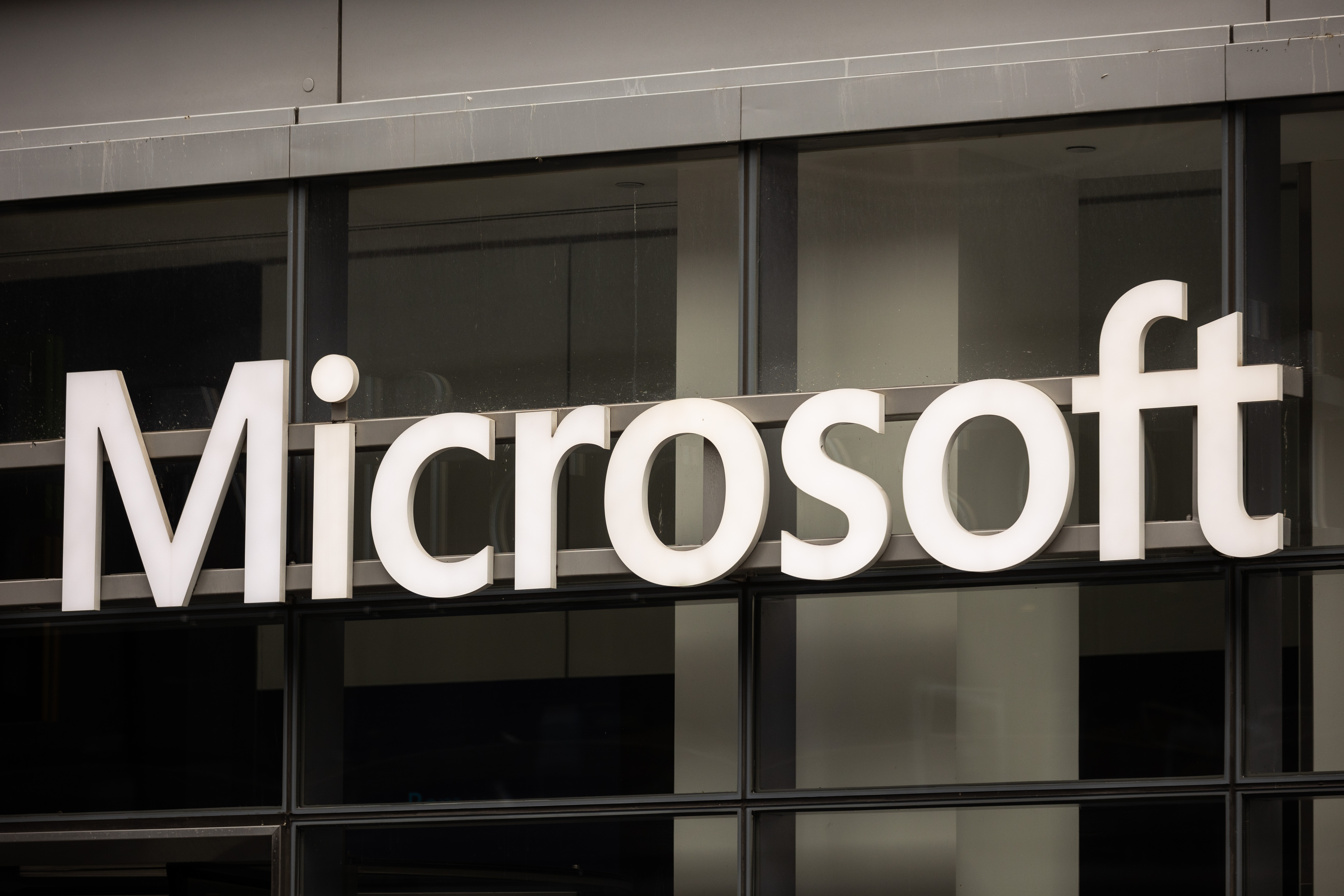Microsoft just disrupted a cyber crime group behind 750 million fraudulent accounts
Microsoft said the group played a “significant” role in the cyber crime-as-a-service ecosystem


Microsoft has taken action against a group it says was behind the creation of hundreds of millions of fraudulent accounts for sale.
The tech giant obtained a court order from the Southern District of New York to seize the US-based infrastructure and take down websites used by a cyber criminal group known as Storm-1152.
Storm-1152 runs illicit websites and social media pages, selling fraudulent Microsoft accounts and tools to bypass the Captcha software used by many companies to prove it really is a human signing up for an online account.
These fraudulent online accounts are often a route to cyber crimes such as phishing, identity theft, and fraud, as well as distributed denial of service (DDoS) attacks, the tech giant said.
Microsoft calculates that Storm-1152 created approximately 750 million fraudulent Microsoft accounts for sale, earning the group “millions of dollars in illicit revenue” and playing a major role in the highly specialized cyber crime-as-a-service ecosystem.
Threat actors and fraudsters frequently use fake accounts to support their criminal plans.
However, because companies are getting better at spotting and shutting down these bogus accounts, criminals need more and more to stay in business. Rather than creating the accounts themselves they can buy them from groups like Storm-1152.
Sign up today and you will receive a free copy of our Future Focus 2025 report - the leading guidance on AI, cybersecurity and other IT challenges as per 700+ senior executives
Microsoft said it has seen ransomware, data theft, and extortion groups using Storm-1152 services. For example, Octo Tempest, also known as Scattered Spider, obtained fraudulent Microsoft accounts from Storm-1152.
Octo Tempest is a financially motivated cyber crime group that uses social engineering campaigns to compromise organizations with the goal of financial extortion.
Microsoft said other groups including Storm-0252 – which uses a fake call center to trick people into downloading ransomware had also purchased fraudulent accounts as well.
As part of the takedown, Microsoft said it disrupted Hotmailbox.me, a website selling fraudulent Microsoft Outlook accounts, as well as 1stCAPTCHA, AnyCAPTCHA, and NoneCAPTCHA.
These websites facilitated the tooling, infrastructure, and selling of the Captcha-solving service to bypass the confirmation of use and account setup by a real person.
RELATED RESOURCE

Discover the three things to consider when looking for the right zero trust solution
Tracking down Storm-1152 involved analysis, telemetry, undercover test purchases, and reverse engineering to pinpoint the malicious infrastructure hosted in the US, Microsoft said.
The firm added that as part of the investigation, it was able to discover the identity of some of the alleged leaders of the group, and Microsoft said it has since submitted a criminal referral to US law enforcement.
“We are grateful for our partnership with law enforcement who can bring those looking to harm our customers to justice,” it said.
This is unlikely to be the end of the attacks for good, however.
Microsoft not out the woods yet
Amy Hogan-Burney, Microsoft’s general manager and associate general counsel, cybersecurity policy and protection, warned that groups such as these are highly persistent and will continue to present a threat to organizations globally.
“As we’ve said before, no disruption is complete in one day. Going after cyber crime requires persistence and ongoing vigilance to disrupt new malicious infrastructure. While today’s legal action will impact Storm-1152’s operations, we expect other threat actors will adapt their techniques as a result.”
Microsoft worked with cyber security defense and bot management company Arkose Labs, which said that CaaS businesses have dramatically lowered the barriers to entry for would-be attackers.
While relatively unknown just a couple of years ago, CaaS groups are now responsible for roughly 80% of the attack traffic seen by the Arkose Labs security operations center team, and is in part responsible for the 167% increase in bot attacks this year, according to the company’s analysis.
Arkose Labs said that although this case focuses on fraudulent Microsoft accounts, the CaaS websites also sold services to bypass security measures on other well-known technology platforms.
“One of our aims in sharing this information is to alert security ops professionals to potential sessions that should be examined and to warn those on the product side of the risk that a significant number of your customer accounts might be fake," Arkose Labs said. "Today’s action has a much broader impact, benefiting enterprises beyond Microsoft."
Steve Ranger is an award-winning reporter and editor who writes about technology and business. Previously he was the editorial director at ZDNET and the editor of silicon.com.
-
 Thousands of Microsoft Teams users are being targeted in a new phishing campaign
Thousands of Microsoft Teams users are being targeted in a new phishing campaignNews Microsoft Teams users should be on the alert, according to researchers at Check Point
-
 Microsoft warns of rising AitM phishing attacks on energy sector
Microsoft warns of rising AitM phishing attacks on energy sectorNews The campaign abused SharePoint file sharing services to deliver phishing payloads and altered inbox rules to maintain persistence
-
 Microsoft just took down notorious cyber crime marketplace RedVDS – and found hackers were using ChatGPT and its own Copilot tool to wage attacks
Microsoft just took down notorious cyber crime marketplace RedVDS – and found hackers were using ChatGPT and its own Copilot tool to wage attacksNews Microsoft worked closely with law enforcement to take down the notorious RedVDS cyber crime service – and found tools like ChatGPT and its own Copilot were being used by hackers.
-
 These Microsoft Teams security features will be turned on by default this month – here's what admins need to know
These Microsoft Teams security features will be turned on by default this month – here's what admins need to knowNews From 12 January, weaponizable file type protection, malicious URL detection, and a system for reporting false positives will all be automatically activated.
-
 The Microsoft bug bounty program just got a big update — and even applies to third-party code
The Microsoft bug bounty program just got a big update — and even applies to third-party codeNews Microsoft is expanding its bug bounty program to cover all of its products, even those that haven't previously been covered by a bounty before and even third-party code.
-
 Microsoft Teams is getting a new location tracking feature that lets bosses snoop on staff – research shows it could cause workforce pushback
Microsoft Teams is getting a new location tracking feature that lets bosses snoop on staff – research shows it could cause workforce pushbackNews A new location tracking feature in Microsoft Teams will make it easier to keep tabs on your colleague's activities – and for your boss to know exactly where you are.
-
 Microsoft opens up Entra Agent ID preview with new AI features
Microsoft opens up Entra Agent ID preview with new AI featuresNews Microsoft Entra Agent ID aims to help manage influx of AI agents using existing tools
-
 A notorious ransomware group is spreading fake Microsoft Teams ads to snare victims
A notorious ransomware group is spreading fake Microsoft Teams ads to snare victimsNews The Rhysida ransomware group is leveraging Trusted Signing from Microsoft to lend plausibility to its activities



